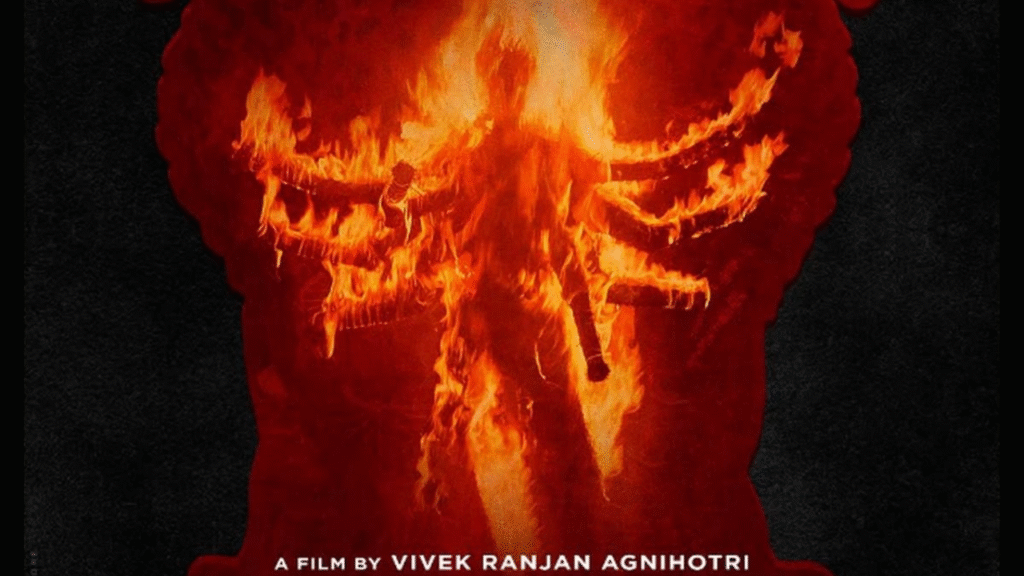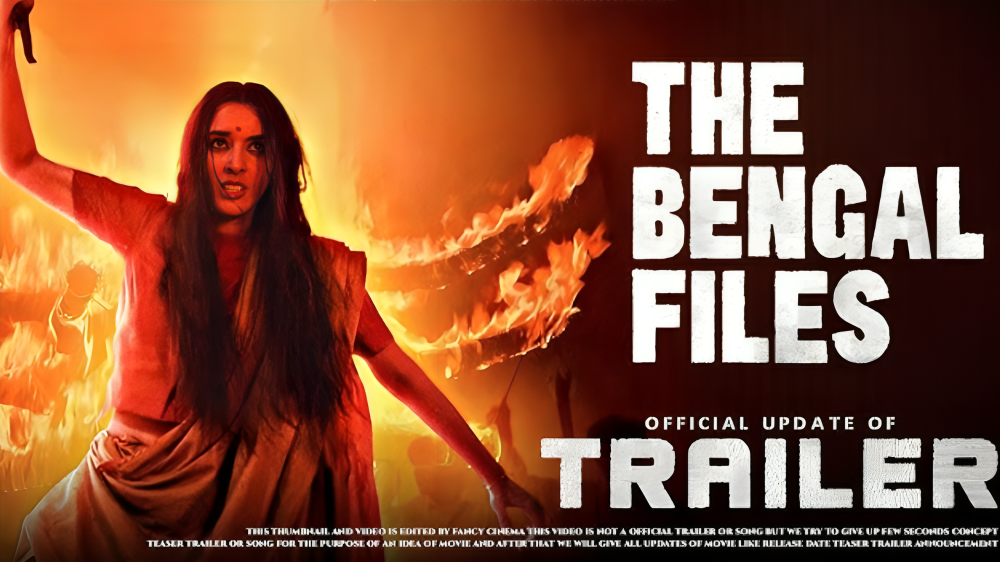Vivek Agnihotri is back in headlines, and this time it’s not just because of his film but also because of the controversy that surrounds it. His upcoming project The Bengal Files, which focuses on the 1946 Calcutta communal riots, has already become a talking point. The trailer launch, scheduled at a luxury hotel in Kolkata, was abruptly stopped, allegedly under pressure from higher authorities. Agnihotri wasted no time in calling it an attack on democracy, saying, “Democracy is dead in Tagore and Vivekananda’s land.”
This isn’t the first time Agnihotri has faced backlash for his films. Remember The Kashmir Files? It stirred strong emotions and debates across the country. While some called it a much-needed revelation of history, others criticized it for promoting divisive sentiments. With The Bengal Files, the filmmaker has stepped into yet another sensitive chapter of Indian history. And if the trailer launch itself is being blocked, one can only imagine the road ahead for its release.
Why Was the Trailer Stopped?
According to reports, the police stepped in and stopped the launch event at the hotel. The official reason has not been spelled out clearly, but insiders say the ruling Trinamool Congress in West Bengal was not comfortable with the subject of the film. A senior TMC leader, who also happens to be a veteran actor, commented anonymously that Agnihotri is known for “troublemaking” and that films like The Kashmir Files had already disturbed communal harmony. From their perspective, the government does not want a repeat of such unrest in Bengal.
But here’s the bigger question: should a filmmaker’s work be stopped just because it deals with uncomfortable truths? Or does the state have a responsibility to step in if it feels a film might trigger tensions?
Vivek Agnihotri’s Strong Reaction
Never one to mince words, Agnihotri took to social media immediately after the incident. He tweeted that the West Bengal police, on orders of “top authorities,” illegally stopped the launch. His frustration was clear when he said, “First theatres, now even a private hotel.” He further remarked that the powers that be don’t want people to know the truth about what happened in 1946.

Agnihotri specifically pointed to figures like Gopal Mukherjee, known for standing up against the atrocities on Bengali Hindus during the riots. “If it is a part of history, do you want to change history?” he asked, questioning the very intent behind blocking his film. According to him, this isn’t just about a film launch—it’s about silencing history itself.
Support From Bollywood
Interestingly, Agnihotri is not standing alone in this storm. Veteran actor Anupam Kher, who plays Mahatma Gandhi in The Bengal Files, has come out in support. In an exclusive conversation, Kher said, “The Bengal Files tells only the truth. Why fear the truth?”
Kher’s statement adds weight to Agnihotri’s argument that the film is not about fueling hatred but about portraying what actually happened. Whether audiences agree with that or not remains to be seen, but one thing is certain—the film has already managed to ignite nationwide curiosity before its release.
The Larger Debate: Freedom of Expression vs. Public Sentiment
This entire incident once again brings us to a familiar debate in India: how free is our freedom of expression? Cinema has always been a reflection of society—sometimes glorifying, sometimes questioning, and at times exposing truths we’d rather not confront. But when films are blocked, censored, or banned, it leaves us wondering—are we really a democracy that allows diverse voices, or do we only encourage stories that are convenient?
The Bengal of Tagore, Vivekananda, and countless other icons has always been seen as a land of free thought, culture, and rebellion. But if a film trailer itself can’t see the light of day in Kolkata, are we betraying that very legacy?
What Lies Ahead for The Bengal Files?
Despite the setback, Agnihotri seems determined. He claims the trailer is already being viewed across the country, and the buzz is undeniable. If anything, this controversy has given the film even more publicity than a simple launch event could. But will it release smoothly in Bengal? That looks highly doubtful at the moment.
What’s interesting is how audiences will respond once the film hits theatres nationwide. Will it be embraced as a powerful retelling of history, or will it be criticized for inflaming communal wounds? Only time will tell. But one thing is for sure—the battle lines are already drawn, and The Bengal Files is going to be more than just a film. It’s going to be a test of how much truth our democracy can handle.






















